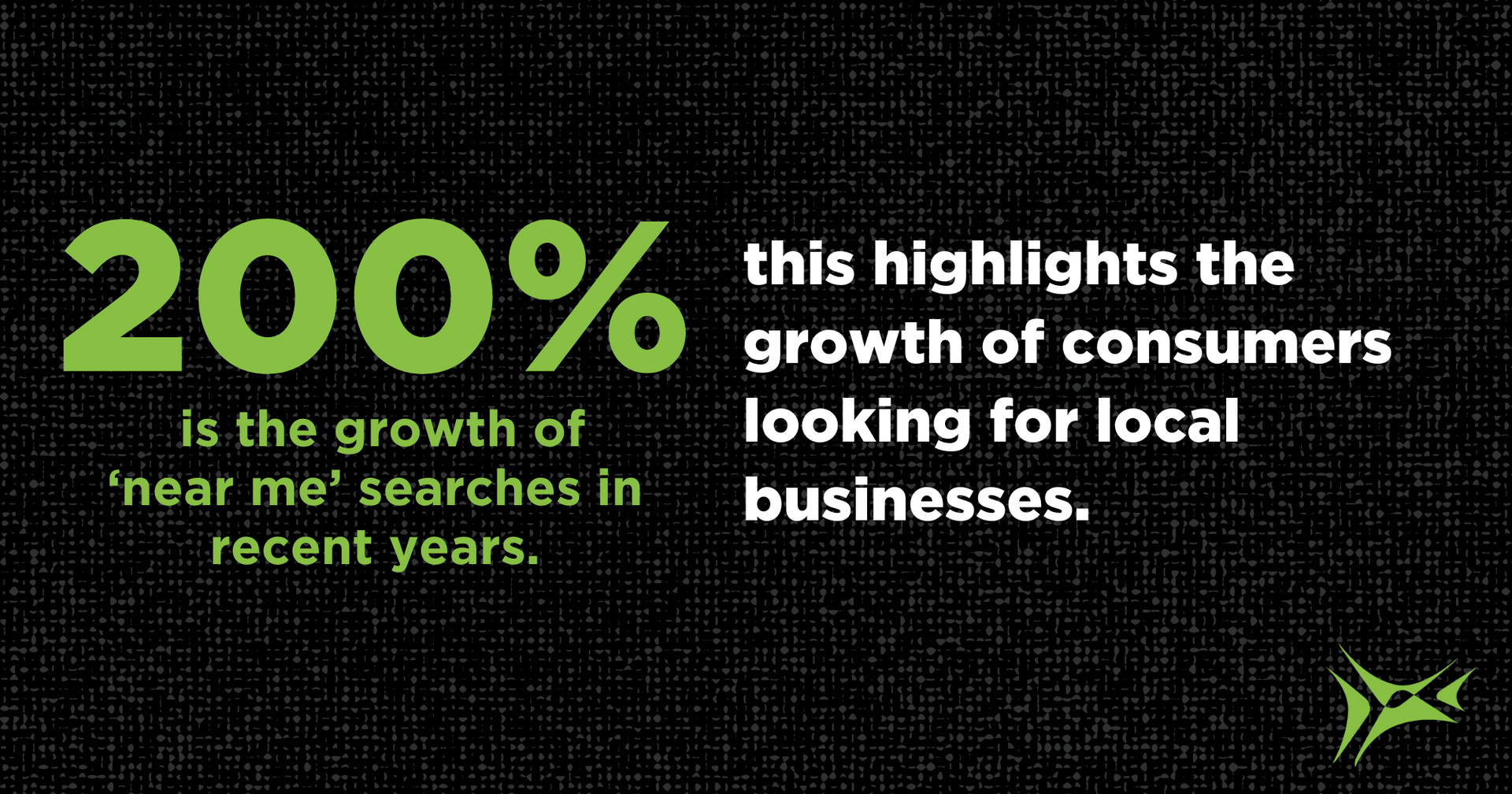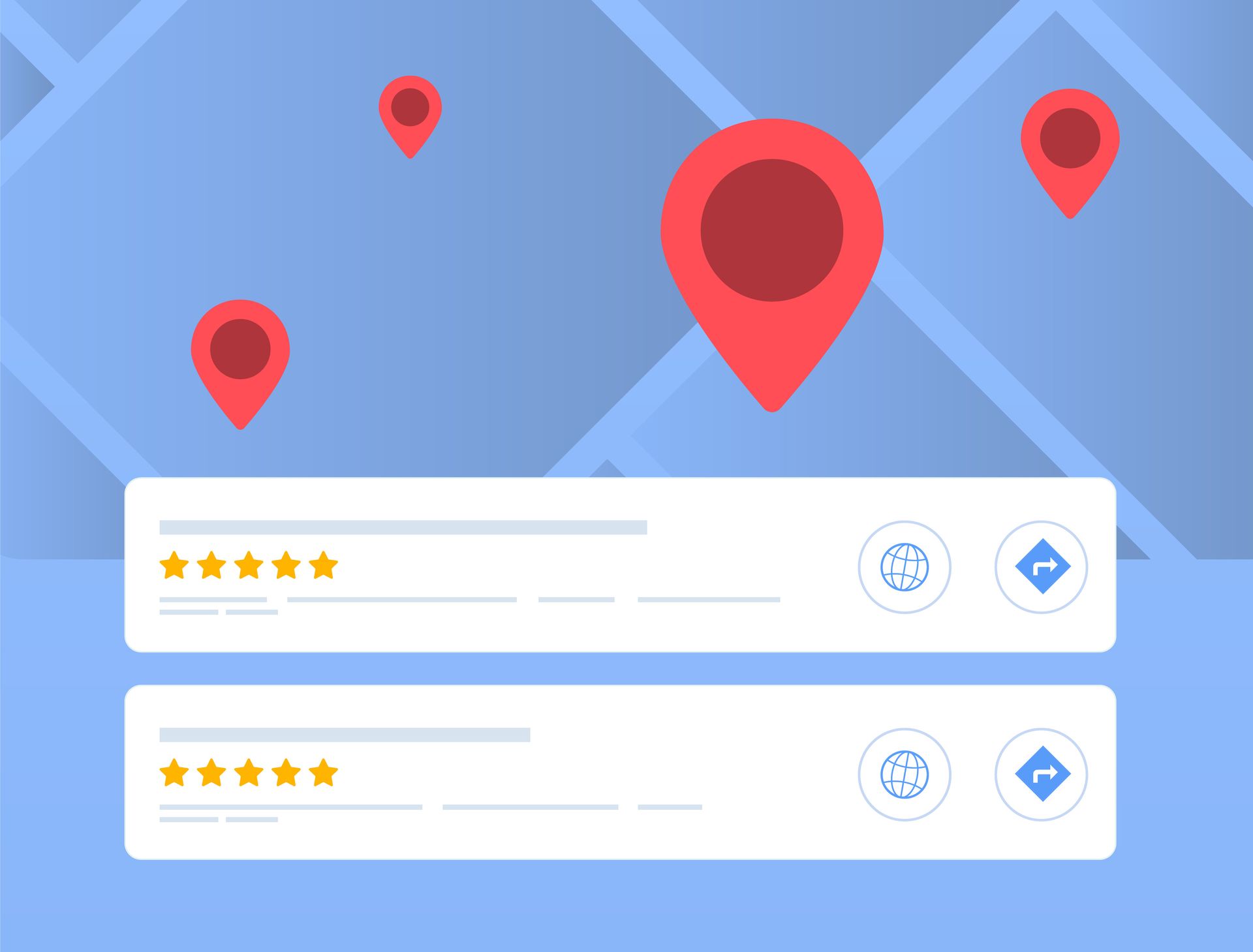How to Rank for 'Near Me' Searches: A Local SEO Guide
At BlinkJar, one of the most common questions clients ask us is, "How can my business show up in Google's 'near me' searches for my location?" The answer lies in a strong local SEO strategy. Whether you run a restaurant, contracting business, healthcare practice, or retail store, optimizing for local search can significantly increase your visibility and attract more customers.
Here's how you can improve your local rankings:
Why Do "Near Me" SEO Strategies Matter?
Searches for "shopping near me" on Google Maps increased by over 100% in 2022. With higher engagement and ROI, optimizing for local search can drive more foot traffic and conversions. Google uses three key factors to determine local rankings:
- Relevance – How well a business profile matches a search query. Complete and detailed profiles improve rankings.
- Distance – How close a business is to the searcher's location.
- Prominence – How well-known a business is, based on reviews, directory listings, backlinks, and overall web presence.

Key Strategies to Improve "Near Me" Rankings on Google Search
1. Optimize Your Google Business Profile (GBP)
Your Google Business Profile is key to appearing in Google's Local Pack (the top map results).
- Claim & verify your business on Google Business Profile.
- Use the correct categories (e.g., Restaurant, HVAC Contractor, Dentist, Clothing Store).
- Fill out all details (name, address, phone, website, hours, services, FAQs).
- Add high-quality photos—Google favors profiles with fresh, engaging images.
- Post updates and promotions regularly (Google loves active profiles).
- Encourage customers to check in and post pictures of their experiences.
- Request and manage reviews effectively.
2. Focus on Local Keywords for Near Me Search Results
Use location-based keywords throughout your website and content:
- Example: Instead of just "Best Coffee Shop," use "Best Coffee Shop in Baton Rouge."
- Create location-specific pages (e.g., "Top Plumbers in Baton Rouge" or "Best Places to Shop in New Orleans").
- Incorporate keywords naturally into your content, headers, meta descriptions, and image alt text.
- Optimize for "near me" searches by including variations such as "plumbers near me," "dentists near me," or "best restaurants near me."
3. Consistent Name, Address, Phone (NAP) for Local Search Success
Your business information should be identical across all online listings:
- Website
- Social media (Instagram, Facebook, LinkedIn)
- Local directories (Yelp, BBB, Chamber of Commerce, Angi, TripAdvisor)
- Industry-specific directories (e.g., Zocdoc for doctors, Houzz for contractors)
- Apply structured data markup to reinforce your location information for search engines.
4. Get Reviews & Respond to Every Single One of Them
Encourage satisfied customers to leave Google reviews, as quantity and recency matter.
- Ask for reviews through follow-up emails, texts, receipts, or in person.
- Respond to every review (positive and negative)—Google sees engagement as a ranking factor.
- Example: "Thank you, John! We're glad you enjoyed your meal at Our Mom's Restaurant and Bar in Baton Rouge!"
- Highlight keyword-optimized reviews on your website and social media pages.
- Encourage customers to leave reviews on high-ranking sites such as Yelp, TripAdvisor, and Angi.
GET YOUR REPUTATION MANAGEMENT SCORECARD
5. Localized Content & Blogging for Near Me Searches
Create blog posts that match local searches:
- "Best Places to Eat in Baton Rouge"
- "How to Choose a Reliable Plumber in Gonzales"
- "Top-Rated Dentists in Prairieville"
- Include landmarks, neighborhoods, and local events to further optimize location-based relevance.
- Utilize structured data (schema markup) to help Google categorize local content effectively.
6. Build Local Backlinks for Improved Rankings
Get mentioned on local blogs, news sites, and directories:
- Partner with other local businesses for guest blogs or features.
- Sponsor local events or charities and request backlinks.
- Submit press releases to local news websites.
- Use geocoded images with embedded metadata to strengthen your local presence.
7. Optimize for Mobile & Page Speed to Rank on Google
Since most local searches happen on mobile, your website needs to be fast and user-friendly.
- Ensure mobile responsiveness.
- Improve loading speed (use Google's PageSpeed Insights to check performance).
- Simplify navigation for a better user experience.
- Use location-based call-to-action buttons, such as "Call Now" or "Get Directions."
8. Optimize On-Page SEO
To connect with people who are searching "near me" keywords in your locations, follow these best practices:
- Optimize Title Tags – Include "near me" and location-based keywords in the title tags of your page.
- Write Meta Descriptions – Encourage click-throughs with compelling meta-descriptions.
- Follow EEAT Guidelines – Ensure your content demonstrates (EEAT) experience, expertise, authoritativeness, and trustworthiness.
- Build Internal Links – Strengthen your site's SEO with interlinked location-specific pages.
- Use Geocode Images & Alt Text – Embed location data in images to improve local ranking.
- Implement Schema Markup – Use Local Business Schema to provide Google with structured location data.
At BlinkJar, we follow a proven process to optimize our clients' online presence. By implementing these strategies, your business is more likely to appear in Google's Local Pack and "near me" searches, making it easier for potential customers to find and choose you. Ultimately, our goal is to drive more traffic and leads—delivering the results you hired us for in the first place.








